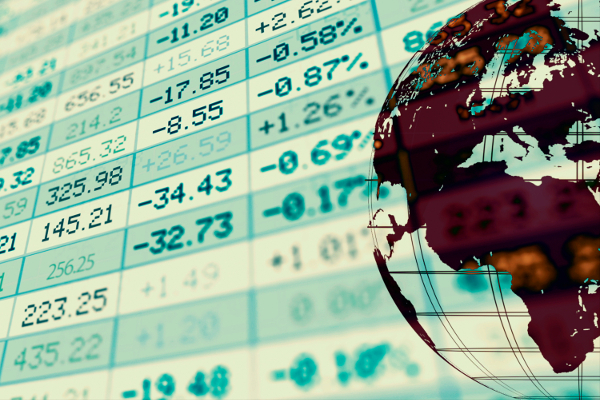There are now 70 times more stock market indices than listed stocks in the world
24th January 2018 09:52
by Tom Bailey from interactive investor

There are nearly 3.3 million stock market indices around the world, according to new research from the Index Industry Association (IIA).
Given that, according to the World Bank there are 43,192 public companies in existence, there are more than 70 times as many stock market indices as there are actual stocks listed across the globe. .
At first glance, the booming popularity of passive investments seems the most obvious reason behind the index-mania.
- Invest with ii: Top UK Shares | Top ETFs | Open a Trading Account
But this is not the case, with the IIA pointing out that are only around 5,000 odd ETFs in existence, which cannot alone explain why there are so many indices.
Instead, behind the proliferation of indexes seems to be active asset managers and their need to measure their relative performance through benchmarking to an index.
Rick Redding, chief executive of the IIA, notes: ‘The results show that benchmarking is clearly the predominant use for indexes around the world. With over three million indexes available, asset managers and investors want choices when choosing a benchmark that best represents their portfolio and the underlying market.’
The more indexes there are the greater choice active managers have when deciding which benchmark to pit themselves against, a point that has not escaped the attention of index providers, who have been making various tweaks to indicies to satisfy demand. For example, it is not uncommon to see funds with ‘blended benchmarks’, which for example can involve mixing two stock market indicies together, rather than the fund measuring itself against a more commonly followed index.
According to Ben Willis, of wealth manager Whitechurch Securities, there’s good reason for this. Blended benchmarks allow managers to ‘measure fund performance against a comparable like-for-like benchmark.’
-How technology is able to outwit human investors
As the fees paid to active managers continues to face competition from ETFs, proving relative performance measured against a benchmark has become more important than ever.
'The cynical view,' says Willis, 'is that they are creating these benchmarks so that they can evidence outperformance.' By creating their own benchmark, managers are able ‘to construct a composite that they think they can beat'.
‘One reason why we have probably seen active managers going down this route of “benchmark creation” is that it has been so very difficult to beat standard benchmark indices in recent years,’ says Willis. ‘By using a composite or blended benchmark, they are able to protect themselves from criticism over underperformance against standard indices and the risk of losing assets because of it.’
Keep up to date with all the latest financial news and investment tips by signing up to our newsletter. Email subscribers will also receive a free print copy of Money Observer magazine.
This article was originally published in our sister magazine Money Observer, which ceased publication in August 2020.
These articles are provided for information purposes only. Occasionally, an opinion about whether to buy or sell a specific investment may be provided by third parties. The content is not intended to be a personal recommendation to buy or sell any financial instrument or product, or to adopt any investment strategy as it is not provided based on an assessment of your investing knowledge and experience, your financial situation or your investment objectives. The value of your investments, and the income derived from them, may go down as well as up. You may not get back all the money that you invest. The investments referred to in this article may not be suitable for all investors, and if in doubt, an investor should seek advice from a qualified investment adviser.
Full performance can be found on the company or index summary page on the interactive investor website. Simply click on the company's or index name highlighted in the article.